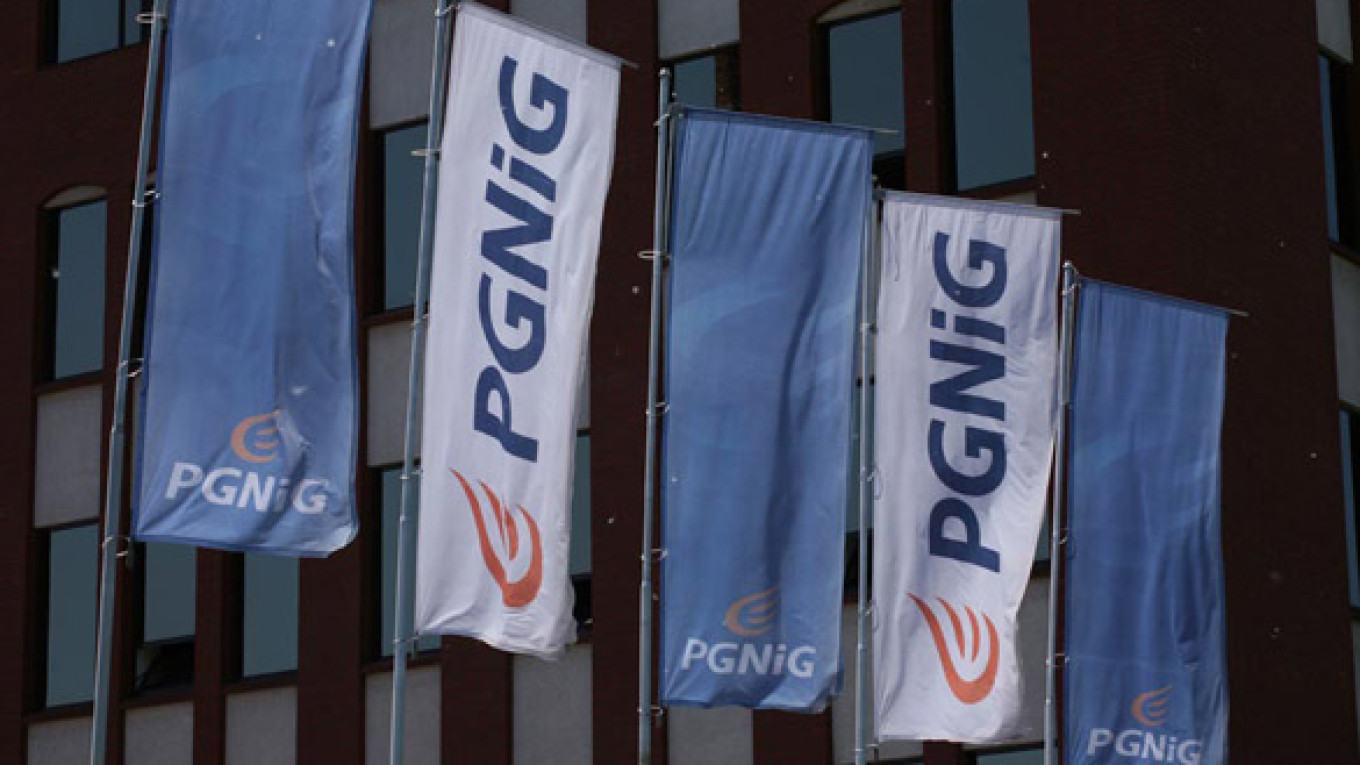Gazprom will receive a 50 percent stake in the Polish operator of the Yamal-Europe gas pipeline, in exchange for which Moscow will begin talks on increasing gas transit rates for Warsaw.
Energy Minister Sergei Shmatko held talks Monday with Polish Deputy Prime Minister Waldemar Pawlak. Shmatko said they reached agreement on three points, Interfax and Prime-Tass reported.
Gazprom and Polish state energy firm Polskie Gornictwo Naftowe i Gazownictwo, or PGNiG, will each take 50 percent stakes in Europol Gaz, which operates the Yamal-Europe pipeline in Poland. Additionally, the operator’s transit rate will ensure “a small, guaranteed profit,” Shmatko said.
Poland should determine the size of the tariff by Wednesday, he said, after which Russia would be ready to “begin preparing” a new bilateral agreement on gas deliveries to Poland, with a new time frame and volume.
Gazprom and PGNiG have been fighting over Europol Gaz’s transit tariffs for a number of years. The Russian side had insisted that the rate should allow the pipeline operator to meet its loan obligations and not lose money, while PGNiG has insisted on a sharp increase. Earlier this year, Moscow and Warsaw began discussing the possibility of higher-volume gas deliveries after Swiss-registered Rosukrenergo stopped supplies, leaving PGNiG with Gazprom as its sole supplier.
But they only began discussing ownership of Europol Gaz last month. The operator, founded in 1993 under a bilateral agreement between Russia and Poland, was supposed to be evenly owned through a joint venture. It ended up having a third owner, however. Gazprom and PGNiG each have 48 percent, with the remaining 4 percent owned by a company called Gaz Trading.
The third company’s primary shareholders are PGNiG, with about 43 percent, Polish businessman Aleksander Gudzowaty, with 36 percent through the company Bartimpex, and Gazprom, with 16 percent, said Jan Antosik, vice president of Bartimpex.
“I don’t want to accuse anyone, but I think we need to look into the corruptness of this decision” to let a third party into the venture, Prime Minister Vladimir Putin said in September. Officials took the comments as an order to action, an Energy Ministry source told Vedomosti at the time.
So far, no one has offered to buy Gaz Trading out of its stake in the venture, Antosik said. He was also surprised at why his company’s participation has even become an issue, since it has no voting influence and all strategic decisions are made only with approval from Gazprom and PGNiG, according to the Europol Gaz charter.
Besides, Gaz Trading has been part of the venture since it was founded, Antosik said. Under Polish law, a joint stock company should have at least three participants.
He said Gaz Trading was proposed by Gazprom, which initially received 35 percent. PGNiG had 30 percent, while Gudzowaty’s Bartimpex had 25 percent. Gaz Trading later had an additional share issue and Gazprom did not take part, which is why its stake was diluted, Antosik said.
On March 31, Gazprom valued its investments in Europol Gaz at roughly $550 million. The venture’s assets were $1.9 billion, with debt of about $740 million. According to those figures, an additional 2 percent stake in the venture would cost about $23 million.
It remains unclear how and when Gazprom and PGNiG will bring their stakes in Europol Gaz up to 50 percent. Spokespeople for both companies declined to comment on the talks.
A Message from The Moscow Times:
Dear readers,
We are facing unprecedented challenges. Russia's Prosecutor General's Office has designated The Moscow Times as an "undesirable" organization, criminalizing our work and putting our staff at risk of prosecution. This follows our earlier unjust labeling as a "foreign agent."
These actions are direct attempts to silence independent journalism in Russia. The authorities claim our work "discredits the decisions of the Russian leadership." We see things differently: we strive to provide accurate, unbiased reporting on Russia.
We, the journalists of The Moscow Times, refuse to be silenced. But to continue our work, we need your help.
Your support, no matter how small, makes a world of difference. If you can, please support us monthly starting from just $2. It's quick to set up, and every contribution makes a significant impact.
By supporting The Moscow Times, you're defending open, independent journalism in the face of repression. Thank you for standing with us.
Remind me later.


